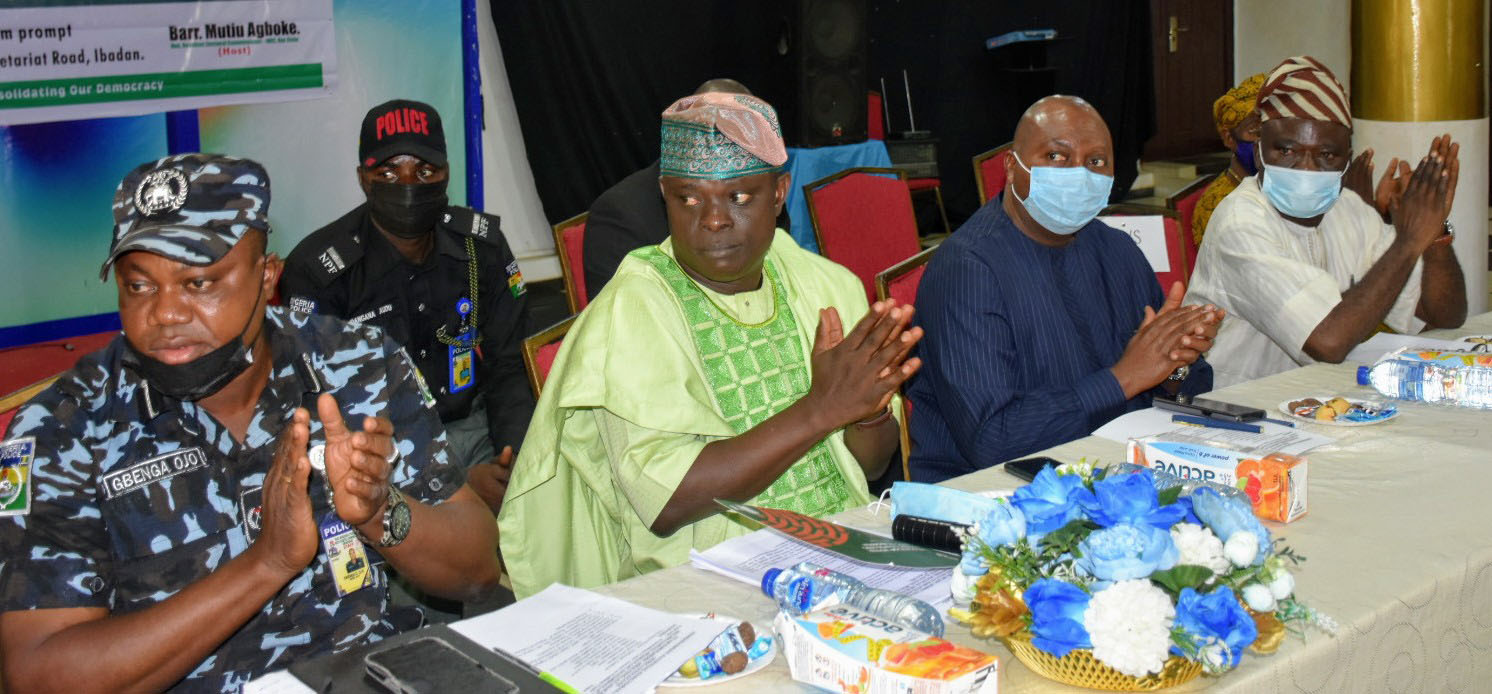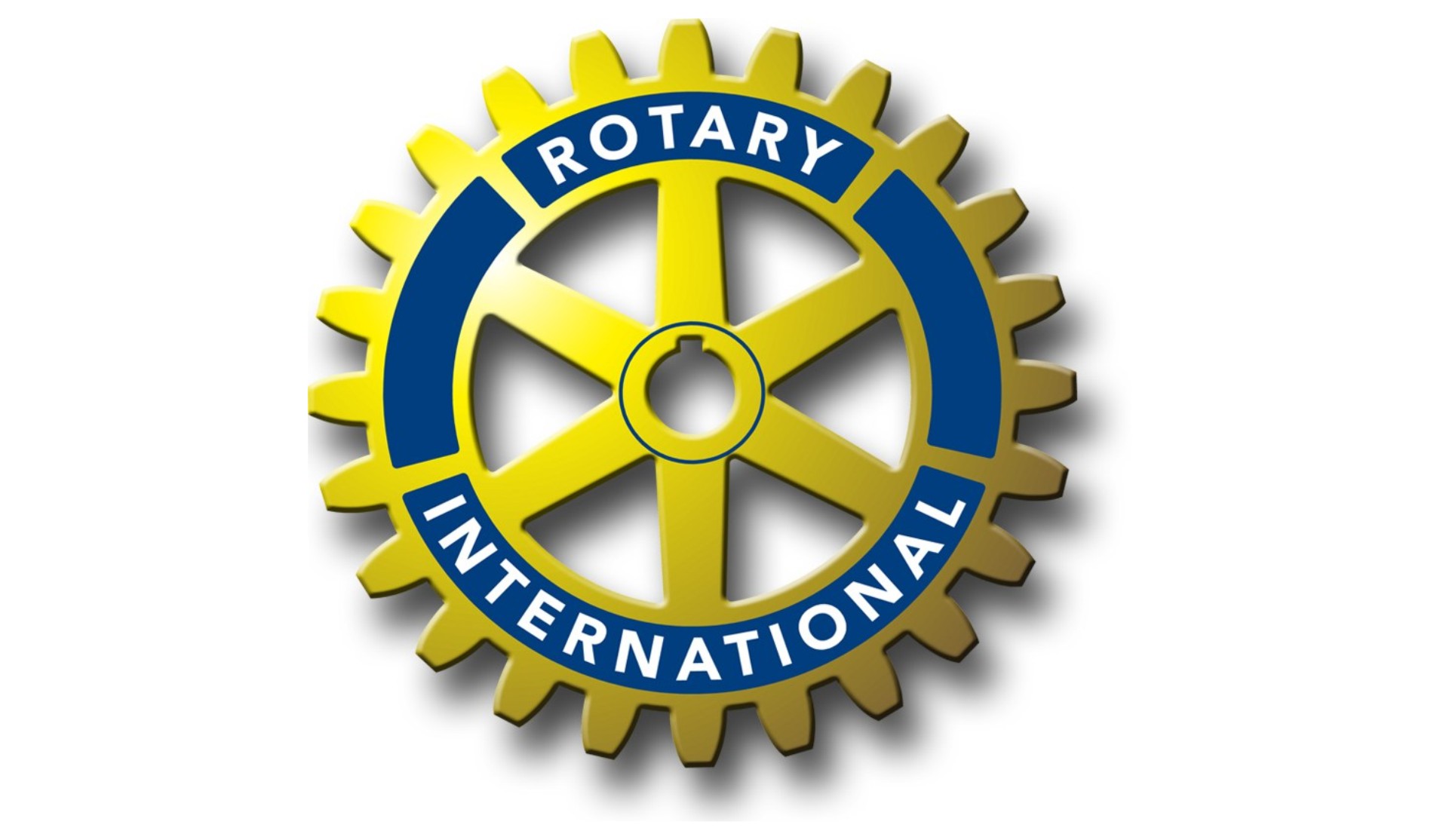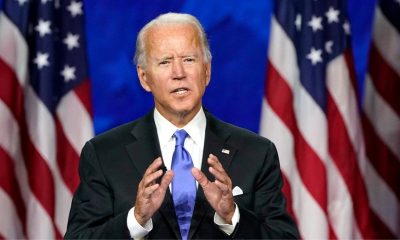News
2023: INEC Targets 200,000 Electronic Voting Machines

With less than two years to the 2023 general election, the Independent National Electoral Commission (INEC) has proposed to buy about 200,000 electronic voting machines to cater for the 176,846 Polling Units in the country.
As such, the agency’s Electronic Voting Implementation Committee has been reconstituted and has commenced work.
The INEC National Commissioner and Chairman, Information and Voter Education Committee, Barrister Festus Okoye, said yesterday that a team of INEC’s in-house engineers were currently evaluating proposals submitted by 49 companies, both local and foreign, for the supply of the machines.
The commission said its engineering team would consider factors such as the machines’ ruggedness and design before short-listing any of the companies.
Okoye said, “As of today, we have 176,846 Polling Units in the country, and each polling unit must be serviced by at least one electronic voting machine. The commission must also acquire redundancies or backups.
“The decision on the number to acquire will be taken by the commission the moment a decision on the machines is taken and the constitutive legal framework amended to accommodate additional use of technology in the electoral process. But we are looking at and proposing around 200,000 machines.”
Asked how many companies had been invited to present supply proposals, Okoye said, “The commission has not invited and short-listed any company for the purpose of supplying the electronic voting machines.
“A total of 49 companies were invited for a Request for Information demonstration. Our in-house engineers are evaluating all the submissions made during the demonstration and will advise the commission on issues of design and ruggedness (fit for purpose),” he added.
The commission stated that companies that came for the RFI demonstration were from Nigeria, the Netherlands, China, the United States, South Korea, the United Kingdom, and India.
“At the appropriate time, the short-listing and selection of companies that may supply or fabricate the electronic voting machines will be subjected to due process requirements and the Procurement Act. As of today, no decision has been taken relating to the manufacturers or suppliers,” Okoye said.
Asked the reason for the delay in short-listing the successful companies, the INEC commissioner cited factors such as the Covid-19 pandemic, expansion of voter access to Polling Units, and the constitutive legal instrument backing up the deployment of e-voting machines in the electoral process.
Okoye said the resumption of the Continuous Voter Registration exercise had taken a lot of the commission’s attention, adding that an Electronic Voting Implementation Committee had been reconstituted and had commenced work.
“A new timeline is being considered for the implementation of the project,” Okoye added.
The INEC Chairman, Prof Mahmood Yakubu, had said during the 2021 budget defence before the House of Representatives Committee on Electoral Matters on November 4, 2020, that the commission would deploy the electronic voting machines “very soon,” possibly beginning with the Anambra governorship poll scheduled to hold in November this year.
However, the commission has been seeking an amendment of the legal framework that would enable electronic voting, noting that it remained committed to introducing electronic voting machines in the electoral process to replace the manual system that had put the commission under heavy logistics burden, including the printing of electoral papers and hiring of thousands of ad hoc staff, among others.
Although there had been divided opinions on whether Nigeria was ripe for electronic voting, Yakubu said at the inauguration of the 1999 Constitution Review Committee of the House of Representatives in October, 2020, that elections in the country were “too manual, expensive, cumbersome and archaic.”
He added that “the encumbrance of the deployment of full technology in elections should be removed.”
Yakubu also recently said at a public hearing on the Electoral Offences Commission (Establishment) Bill sponsored by Senator Abubakar Kyari that the timetable for the 2023 general election would be released in November, 2021.
Meanwhile, ahead of the Anambra State governorship election slated for November 6, INEC said it had begun repairing its destroyed facilities in the state, and replacing some of its non-sensitive materials affected by the destructions.
Gunmen had in the past few months launched attacks on INEC and other government facilities, particularly in the South-East.
The gunmen burnt the INEC office in Anambra State on May 23.
During the attack, the commission stated that it lost its Collation Centre, seven utility vehicles, and 50 per cent of all non-sensitive materials.
However, INEC said it had started rebuilding its office to enable it to conduct the governorship election taking place in the state in less than five months from now.
Okoye, said, “The security situation in the country is fluid. The commission, in conjunction with the security agencies, will continue to evaluate the security situation of the country.
“We have started the process of rebuilding our burnt structures and facilities in Anambra State. We are also replacing some of the non-sensitive materials destroyed during the attack on the commission’s State Headquarters Office on May 23, 2021.
“Also, some of the communities have offered to rebuild or are already rebuilding some of our offices burnt or vandalised during the #EndSARS protest. We are evaluating and auditing the rest of the facilities and making projections relating to the cost for their repairs and or replacement.”
Asked if there would be Continuous Voter Registration in areas in the South-East where INEC offices had been burnt, Okoye said the commission would start the CVR with online registration, which he said would commence on June 28, after which the commission would begin physical registration in the state and local government offices on July 19.
In preparation for the online voter registration, the commission said it had acquired and launched the Voter Enrolment Device, noting that registrants with no legal disability would start their registration online and complete it at the designated registration centres, where their biometrics would be captured.
On whether the CVR would also hold in insurgency-ravaged areas in the North, Okoye said, “We have adopted a gradual and graduated approach to the challenges.”
“We will work with the stakeholders and the security agencies in all parts of the country to protect our personnel and equipment. We are conscious of the expectations of the Nigerian people and will work round the clock for the success of the exercise,” he added.
On general preparations for the 2023 elections, INEC said it had worked “hard” on its processes and procedures and “striving to build a democratic and independent institution.”
The commission also urged political parties to become more democratic and inclusive.
“The bulk of the matters in court relates to challenges with the organisation and practices of the different political parties. We must strive to clean up the party process and hold them to the same standards like the commission,” Okoye said.
News
NASS commends FIRS for surpassing 2024 target, sets 2025 goal

The National Assembly has lauded the Executive Chairman of the Federal Inland Revenue Service (FIRS), Mr Zacch Adedeji, for exceeding the 2024 revenue collection target of N19.4 trillion.
FIRS generated N21.6 trillion, surpassing the target by N2.2 trillion.
The commendation came during a meeting on Wednesday in Abuja, where the FIRS chairman appeared before the joint committee on Finance to defend the service’s revenue projections for 2025.
The committee proposed a N25 trillion revenue generation target for FIRS in the coming fiscal year.
Deputy Chairman of the House of Representatives Committee on Finance, Saidu Abdullahi, was the first to commend Adedeji’s performance, calling it “unprecedented” and “worthy of commendation.”
“The feat achieved by FIRS in revenue collection for 2024 was unprecedented and truly commendable.
“Surpassing the target set for the agency in the 2024 Appropriation Act, from N19.4 trillion to N21.6 trillion, is both encouraging and impressive,” he said.
He encouraged the FIRS to study the tax collection methods of South Africa, which generated higher tax revenue, and to focus on expanding the taxable base to include more informal sector workers.
Sen. Joel Onowakpo emphasised that tax collection was a global norm, and advised the committee to raise FIRS’s projected 2025 revenue target to N30 trillion.
Similarly, Sen. Binos Yeroe lauded Adedeji’s innovative approach in surpassing the 2024 target.
“Your performance in 2024 was highly commendable, and I hope you continue to maintain this level of success,” he said.
Rep. Etanabene Benedict suggested aiming for N60 trillion in 2025 to avoid borrowing.
Committee chairmen also supported the proposed N25 trillion revenue goal for 2025; with Sen. Sani Musa stating that it was both “achievable and surpassable.”
News
Abbas, Kalu express grief over Deputy Chief Whip, Onanuga’s death

Speaker of House of Representatives, Tajudeen Abbas, has expressed deep grief over the demise of the Deputy Chief Whip of the house, Rep. Adewunmi Onanuga.
In a statement on yesterday, Abbas described the late lawmaker as a strong pillar who would be sorely missed in the house.
The Tide source reports that Onanuga, who died on Wednesday, represented Ikenne/Sagamu/Remo North Federal Constituency and was serving her second term in the house.
Abbas said that he had led members of the house in support and prayers for Onanuga during her health challenge and was hopeful of her recovery, saying that her eventual death was painful.
He recalled Onanuga’s campaigns for gender equality, women empowerment and inclusion in politics and governance, as Chairman, House Committee on Women Affairs and Social Welfare in the Ninth House and as a principal officer in the 10th House.
Abbas also recalled how the late lawmaker, as the only female member in the leadership of the house, inspired and rallied female legislators for the greater good of the chamber and the country in general.
“Onanuga was a brilliant woman, experienced politician, resourceful lawmaker and a dependable ally in the legislative business,” he said.
Abbas commiserated with the Onanuga family and her constituents, the people and the government of Ogun as well as the All Progressives Congress (APC) on the demise of the legislator.
Also, the Deputy Speaker, House of Representatives, Rep. Benjamin Kalu, expressed sadness over Onanuga’s death.
Kalu described the deceased as a shining example of dedication, compassion and selfless lawmaker whose service to her constituents and the nation was outstanding.
He acknowledged her support for the Peace In South East Project (PISE-P), which demonstrated her passion for defeating insecurity in Nigeria.
“Onanuga was a dedicated and committed lawmaker, renowned for her unwavering commitment to peace.
“Her passion for promoting harmony and understanding was truly commendable. Beyond her legislative accomplishments, Onanuga’s compassion, humility and simplicity inspired countless individuals.
“Her warm and infectious smile, coupled with her empathetic nature, endeared her to everyone she met, making her a beloved figure in the lives of many,” he said.
Kalu said that Onanuga would be remembered for her commitment to the cause of women’s empowerment and political inclusion as well as her relentless efforts toward ensuring that the gender bills were passed.
The deputy speaker extended his heartfelt condolences to the Onanuga family, her colleagues and constituents, saying that she would be greatly missed.
He prayed for the peaceful repose of the soul of the late lawmaker and the fortitude to bear the loss.
News
Rotary Foundation commits $300m to polio eradication in Nigeria

The Rotary International Foundation says it has committed over 300 million dollars to polio eradication in Nigeria.
Its Chairman, Board of Trustees, Mark Maloney, disclosed this on Thursday while conducting polio immunisation at a Primary Healthcare Centre in Jahi, Abuja.
According to him, polio eradication is Rotary’s number one priority worldwide and it is focused on eradicating the variant type two poliovirus cases discovered in 2024.
Maloney said efforts towards eradicating the polio variant should be intensified, adding that recording success in that area would be beneficial to the Nigerian government.
He also commended the Federal Government’s polio accountability programme as well as all Rotarians for their efforts in putting an end to the disease.
“The Nigerian government is facing a significant challenge with the continuation of variant polio type two, and so far, we have seen about 92 cases through the cases that have been evaluated in 2024.
“We encourage the government to redouble their efforts to put the focus on this polio eradication as they did with the Wild Polio Virus (WPV), and they were successful.”
On new donations to Nigeria, Maloney said that Rotary would allocate some funds in 2025, but the amount was yet to be determined.
“There are 50 million dollars that I expect will be allocated, but a lot of it has to go to Pakistan and Afghanistan, where WPV is still endemic.
“Though, I think there will be a significant tranche of funds, maybe not tens of millions, but a significant amount of money will be allocated to Nigeria,” he added.
The chairman noted that the organisation has allocated two million dollars to its Programme of Scale project aimed at reducing the rate of birth-related mortality in Nigeria.
“What we are looking to do is to decrease the rate of mortality in births in this country, and it is operating now in several districts.
“One way that the mortality rate can be decreased is for more births to happen in a healthcare facility rather than at home.
“We have seen in the first year of the programme a significant increase in the percentages of births happening in medical facilities.
“One district had gone from 11 per cent happening in medical facilities to 33 per cent, which is a significant increase,” he added.
The Chairman of the organisation’s Nigeria National Polio Plus Committee, Mr Joshua Hassan, said outbreak immunisation efforts are conducted locally in response to the vaccine-derived variant of polio.
Hassan said national immunisation days are planned twice a year for the entire country.
According to him, the organisation is focusing more of its efforts on Kano, Zamfara, Katsina, Kebbi, and Sokoto states.
Prof. Emmanuel Lufadeju, the National Coordinator of Together for Healthy Families in Nigeria, said that the Programme of Scale project was designed to reduce maternal mortality among women by 25 per cent.
Lufadeju said that this is done through community dialogue, home outreaches, medical outreaches, and capacity building.
“We are going to train a lot of people, including doctors and nurses.
“Then we are going to do something that is called a social, behavioural change, to change the attitude of people and make them deliver in the facility instead of delivering at home.”
He added that the two million dollar project, which began in 2024, is expected to end in 2025.
The Tide source reports that Maloney is in Nigeria for an official visit to embark on advocacy, carry out symbolic immunisation, visit the Programme of Scale project areas, and also visit President Bola Tinubu.
-
News5 days ago
RSG Confirms Nine Deaths From Cholera Outbreak
-
Rivers5 days ago
Omuma LGA Boss Inaugurate 11 man Scholarship Board
-

 News5 days ago
News5 days agoAbbas, Kalu express grief over Deputy Chief Whip, Onanuga’s death
-
Niger Delta5 days ago
Diri Gives Stewardship On Infrastructure Development
-
News5 days ago
Govs Back Tax Reform Bills, Reject VAT Increase
-

 Featured5 days ago
Featured5 days agoTinubu congratulates Nigerian scientists, engineers on making Biden’s honour list
-

 News5 days ago
News5 days agoNASS commends FIRS for surpassing 2024 target, sets 2025 goal
-
Business5 days ago
CBN Slams N1.34bn Fine On 9 Banks With Indespencable ATMs …Reiterates validity of old N1000, N500, N200 denominations

